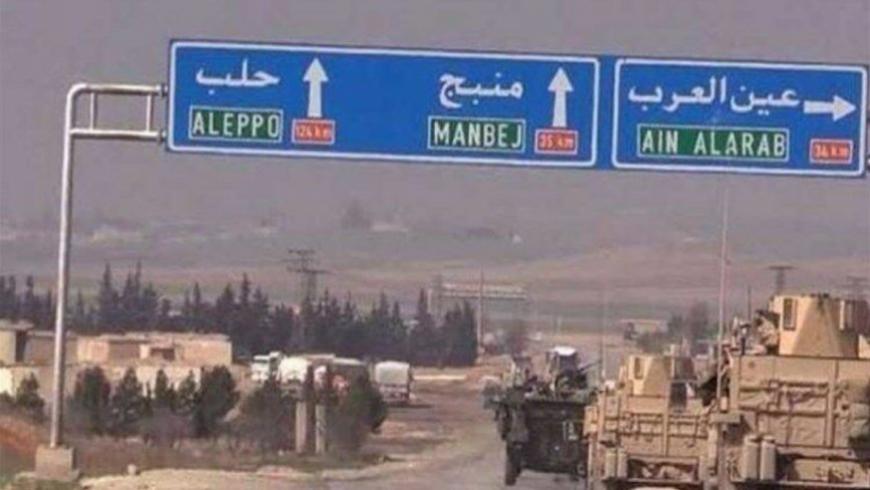Residents of Manbij, east of Aleppo, have renewed their protests against the educational curricula imposed by the Autonomous Administration operating in areas controlled by the Syrian Democratic Forces (SDF). This protest is not new for the city, which continues to reject the SDF’s social, military, and economic policies.
In June 2021, Manbij experienced widespread unrest in response to the forced conscription policy, resulting in the deaths of eight people and injuries to dozens more, along with the arrest of hundreds of local residents. At that time, the protests escalated into clear demands for the SDF to withdraw and for the city’s leadership to be returned to its people.
In an effort to defuse tensions and prevent the protests from spreading in the areas under its control, the Autonomous Administration announced the repeal of the conscription law and established a committee to investigate the circumstances surrounding the protesters’ shootings, vowing to hold accountable those involved.
Throughout 2022 and 2023, Manbij has seen a series of demonstrations and strikes for various reasons, notably protesting the SDF’s discriminatory practices against the Arab majority in senior positions, as well as the decline in living standards, services, and educational conditions. Additionally, the SDF has occasionally launched security campaigns aimed at recruiting young people from the city.
Why were the demonstrations renewed?
With the start of the new school year, the city of Manbij and its surrounding areas have witnessed protests accompanied by a general strike that continues today. The unrest stems from the Autonomous Administration’s imposition of new educational curricula, which residents of Manbij and other northeastern Syrian areas consider offensive to their culture.
The protests have led to a near-total strike by students and teachers, with many educators resigning. Demonstrations have erupted, including the burning and tearing of the new textbooks.
Parents are rejecting the new curriculum because it includes content they view as offensive to their religion, morals, and local culture. They object to its focus on glorifying the Kurdistan Workers’ Party (PKK) and its leader, Abdullah Ocalan, as well as its reverence for Buddhism. Residents believe that imposing these curricula represents direct interference in the educational process and an attempt to enforce specific agendas on students, disregarding the region’s cultural context. Furthermore, they argue that the scientific material presented is neither locally nor internationally recognized.
The protests in Manbij have garnered support from various Syrian opposition institutions. The Syrian Islamic Council issued a statement last Tuesday praising the popular movement against the curricula imposed by the SDF, emphasizing that these materials contradict Islamic teachings and undermine the cultural and social identity of the local community.
Additionally, the Syrian interim government called on the United Nations to pressure the SDF to cease imposing curricula that are “contrary to values and culture.” Notably, Manbij has maintained a prominent position in opposing the SDF since the latter took control of the city in early 2016, following the expulsion of ISIS with the support of the international coalition.
This article was translated and edited by The Syrian Observer. The Syrian Observer has not verified the content of this story. Responsibility for the information and views set out in this article lies entirely with the author.


